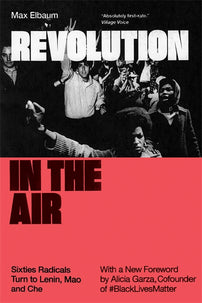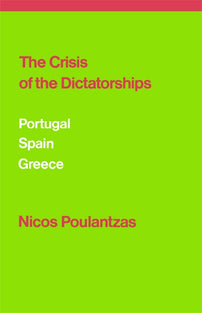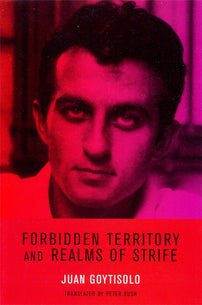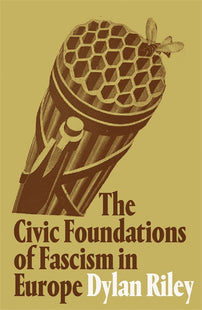1968 and the Spanish State: The Year in its Context
Understanding the Spanish 68 requires an understanding of the rise of anti-Francoism in the previous years and its evolution after the state of exception declared in January 1969.

1968 is a prominent year in the popular history of the twentieth century. To think about it in relation to the Spanish State implies both analyzing the "global 1968" and situating the events of that year in Spain in the broader context of the rise of the anti-Francoist movement.
It can be stated, as Kristin Ross has, that there was no Spanish 68. 1 But this must be interpreted in the sense that there was no exceptional May Event. Not in the sense that nothing happened, but rather that 1968 must be considered within a general dynamic of rising social protest. Not a May explosion, but a turbulent 1967-68 period that was part of the rise of the student movement that had been building since 1964–1965, the emergence of a new workers’ movement around the Comisiones Obreras (Workers' Commissions) since 1962, and the growth of the Spanish Communist Party (PCE) and the revolutionary left.
The lack of a "May 68" event, in May or at any other moment of that year, means that international analyses of 68 rarely view Spain as a particularly outstanding case. 2 But if we put the focus not on the year but on the period, there is no doubt that the anti-Franco struggle was one of the great movements of the time and that international 68 events influenced it. Understanding the Spanish 68 requires an understanding of the rise of anti-Francoism in the previous years and its subsequent evolution after the state of exception of January 1969.
Distortions
1968 has been, and continues to be, a political and intellectual battlefield. The most common distorted retrospective readings of 1968 reduce the events to a generational conflict and a socio-cultural revolt. In short, a "depoliticized and depoliticizing" vision of May '68 that, as Daniel Bensaïd points out, amputates its anti-capitalist dimension and reduces it to a “desire for anti-authoritarian liberation and modernization of customs." 3 This biased interpretation of 68 is based on what Kristin Ross calls a double confiscation of the event: a biographical one, which links the movement to the biographies of some of its leaders who set themselves up as its legitimate interpreters and gave meaning to what happened from the point of view of their later role in society, and another sociological one, that canonizes a generational and modernizing story. 4
The biased readings of the Spanish 68 and, more generally, of anti-Francoism also echo this depoliticizing, culturalist, and generational point of view. But along with this common trivialization of the international 68, in the Spanish case there have been some specific distorted interpretations of the events. All have the dual function of limiting the political depth of the protests of the time and reaffirming a historical teleology by which the course of events after the Franco era was the only possible one.
The first distortion is to deny the political effervescence of Spain at the time. That is, to take advantage of the lack of a "May 1968 event" in Spain to dissolve the importance of anti-Francoism, banalize it, and render it a secondary issue in a society benefiting from liberalization and developmentalism. To deny the scope of the revolt is, in any case, a common mechanism of conservative historiography and views of the sixties in general.
The second is to consider anti-Francoism, and the student movement in particular, simply as a democratic movement, in pursuit of a political change that would standardize Spain with Western European democracies. Often linked to the politics of the PCE of the time and defended retrospectively by former leftists who evolved towards the PSOE, these interpretations involve a reductionist conception of the student movement both in terms of the radical nature of its demands and of its general function as a space for the politicization of youth and as a lever for broader struggles. 5 However, the "democracy" for which the students were fighting in 1968, no matter how imprecise it was in its concrete formulation, had a broader meaning than the "democracy" that was consolidated after the Transition and had a certain pro-socialist component. In the words of Álvarez Cobelas, the student movement fought for "socialism of diffuse and contradictory characters." 6 And, in fact, along with the basic slogan of the "democratic university", the movement used others such as "popular university" that showed the will to go beyond a mere "democratism" favorable to Western capitalism and to question the role of the university as an instrument for the reproduction of the elites. 7
The third is to isolate anti-Francoism from its international context. An "autarkic" conception of anti-Francoism serves again to limit its scope and content and reduce it to merely a struggle for democracy, ignoring its more or less diffuse semi-socialist and anti-capitalist character, in phase with the rebellious wave of the time. 8 Although it responded to the specific social and political situation of the Spanish State, the movement must be placed in its international, political, social, and cultural context. Although the events of 1968 took place in specific national contexts, and lacked coordination and direct links, despite some informal ties between activists, 1968 as such presents the characteristics of a global event. 9 The Spanish 68 must be analyzed from this perspective. This does not mean blurring its particularities and considering them a mere local expression of a global dynamic, but better understanding its characteristics. The national and the international are interrelated and can neither be dissolved into one another nor rigidly dissociated.
The fourth, and a variant of the previous one, is the affirmation that there was no Spanish 68 because Spain was politically and culturally isolated from the European continent. In reality, neither dictatorship nor censorship prevented the international spread of radical ideas then in vogue. The protagonists of the events of 1968 in each country identified with the protests in others and were aware that they were living a global moment. 10 This is also valid for Spain where during the second half of the 60s university militants were, from their particular situation, "joining in this way a process of radicalization that would have a global reach." 11 The problems with Spanish universities and student conditions were similar to those of Western Europe, although logically mediated by the dictatorship that conditioned its development, forms of action, and framing of political priorities. As Fernández Buey remembers, the false discourse that "we were not in Europe" obviates the subjective and intellectual connection of anti-Francoism with the international left of the time and serves to associate entry into Europe with entry into the European Economic Community (EEC) in 1986 and the PSOE’s modernization project after 1982. 1
The final distorted reading is to attribute the socio-cultural changes in Spanish society post-68, beginning with the transformation of the role of women, to a mechanical consequence of developmental and “modernization” policies practiced by the regime, when in reality they could not be understood without the impact of the protest movements of the period. This reading seeks to minimize the impact of the struggle of the 60s and 70s in Spanish society. If in France some conservative readings, such as those raised by Sarkozy in 2007, seek to attribute responsibility for the rise of competitive individualism and consumer narcissism to May 68, the inverted variant of this thesis in the Spanish case would mean denying its role in the positive socio-cultural modernization of Spanish society.
The Context of 68
1968 is situated towards the end of a decade of changes in the regime that started in the late 1950s, marked by the end of autarky, developmentalism, and a very slight political openness. From the late 50s, a number of laws were enacted that modified the legal system established after the war, but without changing the authoritarian nature of the regime, and which sought their internal relegitimation. These legal changes maintained the anti-democratic character of the regime but facilitated the creation of "spaces of contestation." 13
1968 came after several years of the continued rise of anti-Francoism at universities, in the world of labor, in the Church, and in the intellectual milieu. From 1962, after the strikes by Asturian miners, a rebuilding of the workers' movement had begun with the emergence of the “Comisiones Obreras” (workers comissions). From then on, in a context of urban growth and industrialization, of the formation of a new working class, and of an increase in the standard of living, labor unrest was a recurrent and booming phenomenon. The workers' commissions expanded after 1962 and were consolidated in the union elections of 1966, and suffered major repression before being outlawed in March 1967. 14 Within their own specificity and the particularities of the struggle against the Franco regime, their rise is related to the "new workers' movement" that peaked during the 60s in the whole of Western Europe. 15
The 60s also saw the emergence of what would come to be defined as the student problem. From 1965, the student conflict was a matter of public order and blurred the official "peace" of Spain, whose 25th anniversary had just been celebrated. What was happening was a "failure of Francoist political socialization of young people" — a question that the regime itself did not fail to notice. 16 The old Falangists had de facto abandoned their efforts to win students over to their cause and the rising faction within the dictatorship power structure, Opus Dei, was a minority focused on conquering senior state positions but that lacked a viable project for the mass political socialization of the university youth. 17
Since 1965, the university had become a constant source of protest, with Madrid and Barcelona as a desynchronized “vanguard." One of the characteristic features of this phase was "the lack of synchrony between the movements of the two most quantitatively important universities in the country" and also between these two and the rest of the university districts. 18 The student movement had a particular geography and temporality showing a "discordance of the times and spaces," to use Daniel Bensaïd’s formula, that is so common to many social movements. 19
The movement initially clashed with a Francoist university characterized by its mediocrity, propaganda, and disconnection with international scientific and intellectual programs. It was as intellectually mediocre as it was institutionally decadent. The massification, although to a lesser extent than in most European countries, of the university did nothing but exacerbate the structural deficits of the same with regard to teaching and functioning. The obsolete university structures, aggravated by the endemic lack of resources, were increasingly inadequate for an academic community made up of the children of a rising middle class and families belonging to the side that won the war.
The struggle against the Sindicato Español Universitario (SEU — Spanish University Union) and to achieve democratic student representation constituted the strategic axis of the 65–68 period. In the first national student meeting held in Barcelona in March 1965, it was agreed to promote autonomous democratic student structures in confrontation with the SEU. This culminated in March 1966 with the creation of the Sindicato Democrático de Estudiantes (SDE — Democratic Student Union) at the University of Barcelona at an assembly held at the Convent of the Capuchin Fathers of Sarriá, whose protection of the students before the police siege caused major impact. It has since then been said that, for the Barcelona student movement, "our 68 was 66," although this should be understood in the sense that it was the decisive moment for the emergence of the student protests, nor in the sense that what happened that year was equivalent to the global significance of the events of 1968 in France. 20 The foundation of the SDE in Barcelona would serve as a model for the creation of many other SDEs in 67 and 68, among these the SDE at the University of Madrid launched on April 26, 1967.
The rise of the movement since 1965 was causing a shift in the correlation of forces between the protest movement and the Francoist institutions, creating a situation of "dual power" within the university. 21 However, once the old union had been destroyed and democratic representation was imposed through the SDE, paradoxically, the student union lost its meaning. Its limitations as an instrument of global social change became apparent. That is to say, the achievement of a democratic union was more important than the role that it could then actually play. The imposition of democratic student representation was an unquestionable victory, but its functionality and real usefulness for the struggle was less relevant. The SDEs slumped into crisis, at different rates, after 1968. Hence the paradox of a successful failure.
1968 and the Echoes of France
The events of May 68 in France impacted the Spanish State, although the year itself did not feature any extraordinary episodes of mobilization. Throughout the crisis of the French May the Francoist authorities showed major concern that it could spread to Spain. The fear of "contagion" guided their entire policy. They tried, at first, to avoid coverage of the events. Censorship worked well and strictly on radio and TV, but the written press after the enactment of the Press Law in 1966 had more room.
The official press of the Movimiento Nacional (National Movement) were not only hostile to the demonstrators but also initially critical of De Gaulle for his lukewarmness and considered the protests to be an episode instigated by the French Communist Party. 22 The conventional press, on the other hand, combined criticism of French students with respect for the General. After the call for elections by the French President and the recovery of control of the situation by the Pompidou government, the press, including that of the Movimiento, closed ranks with the French executive. The only discordant voice was that of the newspaper Madrid, linked to a sector of Opus Dei, which published an article by Rafael Calvo Serer with the explicit title of "Retiring in time" in which he took advantage of the French crisis to attack De Gaulle and hint at the need for Franco to retire. As a result, the newspaper was fined and closed for four months. 23
The French 68 was especially important in the Spain for its impact on the student movement. But its impact on the labor movement was much milder. The events of May 68 had little direct influence on the Comisiones Obreras and there are few references to them in their internal documentation, although it could be considered that there was an indirect general impact pushing for radicalization. It also helped to create the cultural and political awakenings that would later foster the Spanish feminist movement in mid-seventies. 24
May 68 contributed to the radicalization of social protest and represented the turning point that gave way to a new phase of anti-Francoism. It aroused broad interest among the radicalized student minority, as was already evident during the emblematic concert by Catalan singer-songwriter Raimon on May 18 at the Faculty of Political and Economic Sciences of the University of Madrid. The French explosion was particularly influential among the student sector of the Frente de Liberación Popular (FLP-Popular Liberation Front) which had the political leadership of the movement in Madrid in 66–68. 25 If May generated transversal sympathies, only the anarchists and students of the FLP took it as a direct reference. 26 For its part, the PCE viewed the events of May as proof of the disconnection between its French counterpart and young people and extracted from it the need to avoid the same in the Spanish State. Its General Secretary, Santiago Carrillo, had a much more empathetic attitude to the revolt than that maintained by the leadership of the PCF, and this distanced both parties. Nevertheless, he accepted the economicist approach of his French counterpart who circumscribed the conflict to the industrial-union terrain without pushing for political confrontation with the State power. 27
State of Exception and Political Radicalization
1968 marked the end of the regime’s liberalization phase, with the abrupt shift towards repression following the declaration of the state of exception in January 1969, after the murder in Madrid of the FLP student and militant Enrique Ruano at the hands of the police. The political objective and the strategic reasons for the declaration of the state of exception are well summarized in the explanations offered by the Minister of the Interior, Manuel Fraga, on January 25 in the newspaper ABC: "It is better to prevent than to cure. We are not going to wait for a May when it will be more difficult and more expensive to sort out." 28
After the end of 68, with the start of the new academic year in September, and throughout 69, the movement experienced a process of verbal radicalization of its forms of action (which shifted from the assembly and strike to sit-ins, confinements, occupations of Chairs, "critical judgments" of reactionary professors, lightning demonstrations, urban guerrillas ...). It was increasingly using revolutionary language that took distance with the narrow anti-Franco “democratism." Anti-Francoism was extended to anti-imperialism and anti-capitalism. The new dynamics of the movement often involved a hyperideological radicalism that was based on transpositions of the international context that did not take into account the actual correlation of forces. But it meant a renewal of the movement and an overcoming of the limits of its previous phase and its innate tendency towards the "'unionization'" of the university struggle. 29
Radicalization was accompanied by internal polarization and fragmentation. The assessment of May helped to accentuate the strategic divergences of the student movement, in an environment of historical "urgency." The unitary dynamic of the movement was easy in the phase of opposition to the SEU. But once destroyed, it was more difficult to articulate common objectives. It crystallized a division between those who wished to continue with the more traditional student movement around the SDEs and the supporters of creating action committees and direct action methods. 30 The latter was the policy defended by the students of the FLP, whose organ of expression, Acción Universitaria (University Action), was significantly renamed Barricada (Barricade). The FLP was oriented towards the building of action committees with the aim of grouping all the currents to the left of the PCE, in a certain analogy of what the French March 22 Movement had been, and towards the struggle through "exemplary actions" ("We define 'exemplary action' as one capable of triggering a process that overcomes it” as Barricada put it). 31
The student movement as a whole was knocked out by the abrupt shift to repression and would never again achieve the dynamism of the 65–68 period. But if in the short term the state of exception managed to hit hard, in the end it was nothing more than the verification of the loss of legitimacy of the regime and its inability to self-reform. The country was entering into late-Francoism, the last stage of a regime that as a result of the “process of Burgos” at the end of 1970 would suffer a major discredit and international isolation.
Urgency and Patience
Preparing for the next time, the conviction that there would be another occasion was the lesson that was learned from May 1968 by those who most identified with the French crisis, the FLP students. This allowed them to get over the defeat and continue on the road. But, as Miguel Romero points out, "it took a long time to learn that May 68 was not the 'model' for the future crises of capitalist society and to learn to build a revolutionary organization in conditions of stagnation or regression of social mobilization, not merely by waiting for the great event, but within the real struggles and movements." 32 Be prepared for the decisive moments and know how to manage the transitory "non-moments." To resist in difficult times and not to miss opportunities when they come. Combine the sense of urgency with patience. Lessons that, half a century after May, allow us to keep the torch of revolutionary hopes alight in the present.
Notes
1. Ross, K. (2002). May 68 and its afterlives. Chicago: The University of Chicago Press, p. 18.
2. This is the case, to quote an example, of Mark Kurlansky who in his 1968. El año que conmocionó al mundo (Barcelona: Destino, 2005) makes only a few comments about Spain.
3. Bensaïd, D. and Krivine, A. (2008). 1968. Fins et suites. Paris: Lignes, p. 15.
4. Ross, K. (2002). op.cit.
5. Gari, M. (2014). “Años de pasión, esperanza y revuelta. El Moro en los sesenta”, Viento Sur 133, pp. 29-37.
6. Álvarez Cobelas, J. (2004) Envenenados de cuerpo y alma. La oposición universitaria al franquismo en Madrid (1939-1970). Madrid: Siglo XXI, pp. XV & XVI.
7. Garí, M. (2011). "Los sesenta: el mundo pudo cambiar de base", in Domínguez, A. (de.). Enrique Ruano. Memoria viva de la impunidad del franquismo. Madrid: Editorial Complutense
8. Garí, M. (2011). op.cit., p.78
9. Fink, C., Gassert, Ph., and Junker, D. "Introduction" in Fink, C., Gassert, Ph., and Junker, D. (eds). 1968. The World Transformed. Cambridge: Cambridge University Press, pp. 1-27. This emphasis on the global dimension of the event seems to me more successful than the other way around, as Richard Vinen tends to do in 1968: the year in which the world could change. Barcelona: Critica, 2018.
10. Fink, C., Gassert, Ph., And Junker, D. op.cit. , pp. 1-27
11. Pastor, J. (2008) "El movimiento estudiantil bajo la dictadura franquista y el 68 español" in Garí, M., Pastor, J., and Romero, M. (eds.). 1968. El mundo pudo cambiar de base. Madrid: La Catarata, p.284; also González Férriz (1968.El nacimiento de un nuevo mundo. Barcelona: Debate, 2018) inserts the protests of the Spanish State in their global context.
12. Fernández Buey, F. (2009). Por una universidad democrática. Barcelona: El viejo Topo, pp.93-115.
13. Cruz, R. (2015). Protestar en España, Madrid: Alianza, p. 157
14. Ysàs, P. (2004). Disidencia y subversión. La lucha del régimen franquista por su supervivencia, 1960-75. Barcelona: Crítica; Molinero, C., and Ysàs, P. (1998). Productores disciplinados y minorías subversivas. Madrid: Siglo XXI.
15. Horn, Gerd-Rainer (1998). “Tha Changing Nature of the European Working Class” in Fink, C., Gassert, Ph., and Junker, D. (eds). 1968. The World Transformed. Cambridge: Cambridge University Press, pp. 351-371
16, Ysàs, P. (2004).op.cit., p.6
17, Fernández Buey, F. (2009). op.cit., p.35
18. Fernández Buey, F. (2009). op.cit., p.26
19. Bensaïd, D. (2009). Elogio de la política profana. Barcelona: Península
20. Fernández Buey, F. (2009). op.cit., p.97.
21. Fernández Buey, F. (2009). op.cit., p.34.
22. Badenes Salazar, P. (2018). Fronteras de papel. Madrid: Cátedra. The author offers a complete study on the impact of French events in Spain.
23. Fleites, A. (2009) "¿Retirarse a tiempo? La visión de mayo del 68 en la España contemporánea", Historia Actual Online, 19, pp. 163-176.
24. Galcerán, M. (2008). "El Mayo del 68 francés y su repercusión en España", Dossiers feministes 12, pp. 77-98
25. Gari, M. (2014). op.cit.
26. Romero, M. (2008)."Mayo del 68 desde lejos: un ensayo impaciente" in Garí, M., Pastor, J., and Romero, M. (eds.). 1968. El mundo pudo cambiar de base. Madrid: La Catarata.
27. Galcerán, M. (2008). op.cit., pp. 77-98
28. I take the Fraga quote from: Badenes Salazar, P. (2018). op.cit. p. 77
29. Fernández Buey, F. (2009). op.cit., p.106.
30. Pastor, J. (2008). op.cit.
31. Romero, M. (2008).op.cit., p.318-319.
32. Romero, M. (2008).op.cit., p.323.
Josep Maria Antentas is a Teacher of Sociology at the Universitat Autònoma de Barcelona (UAB).
[book-strip index="1" style="display"]




